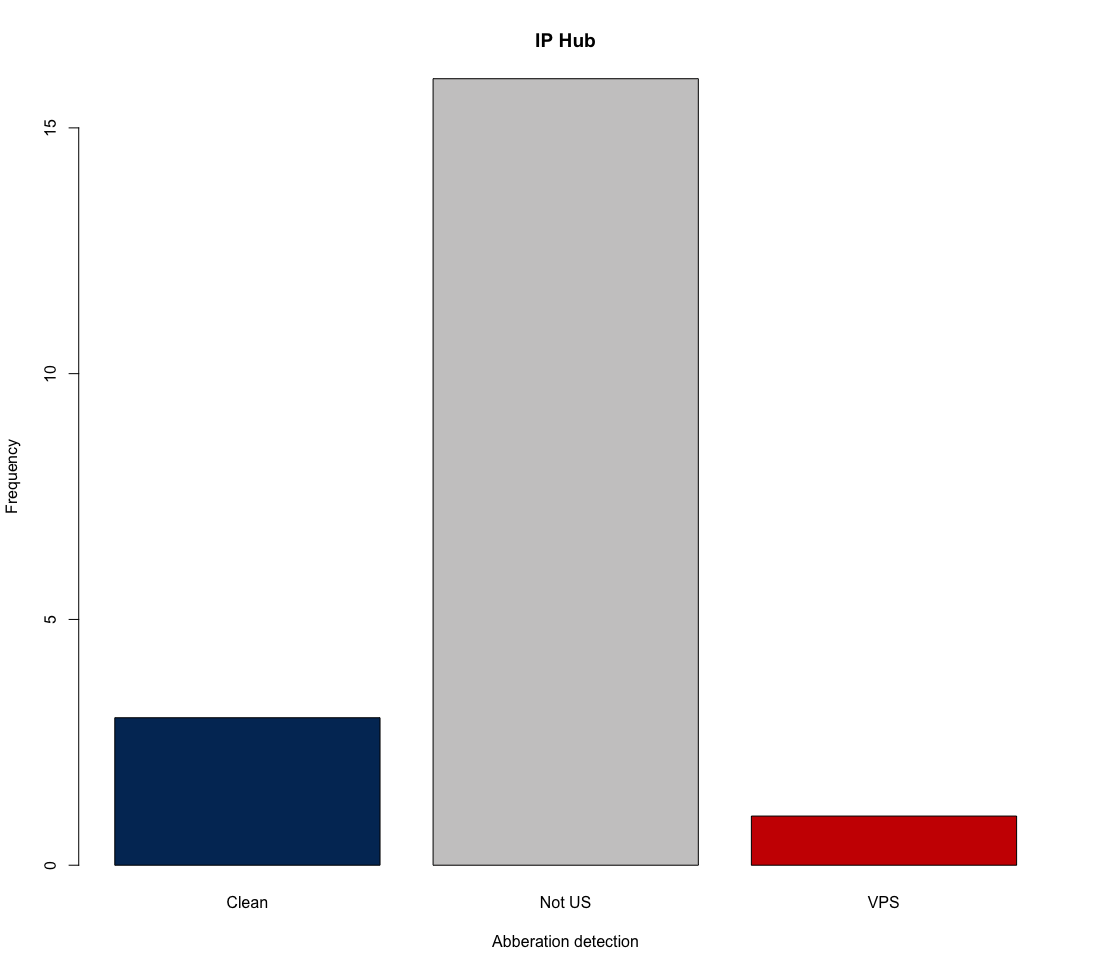Takes an array of IPs and the keys for the services the user wishes to use (IP Hub, IP Intel, and Proxycheck), and passes these to all respective APIs. Returns a dataframe with the IP addresses (used for merging), country, ISP, labels for non-US IP Addresses, VPS use, and recommendations for blocking. Users also have the option to visualize the distributions.
Especially important in this is the variable "block", which gives a score indicating whether the IP address is likely from a server farm and should be excluded from the data. It is codes 0 if the IP is residential/unclassified (i.e. safe IP), 1 if the IP is non-residential IP (hostping provider, proxy, etc. - should likely be excluded), and 2 for non-residential and residential IPs (more stringent, may flag innocent respondents).
Note: rIP requires users to have active (free) accounts and/or valid keys at iphub, ipintel, and/or proxycheck. Users may pass any number of IP service keys to the function (e.g., 1, 2, or all 3). The function will work fine with any.
See some related working papers here and here. And the R-Bloggers post is here.
Please review and abide by our contributor code of conduct if you'd like to contribute to the tool. Thanks!
Users can install either the stable version released on CRAN (v1.2.0):
install.packages("rIP")
library(rIP)
Or the dev version directly from our GitHub repo:
devtools::install_github("MAHDLab/rIP")
library(rIP)
# Load the library
library(rIP)
# Store personal keys for IP service pings (here we include only "ipHub" as an example)
ip_hub_key <- "MzI2MTpkOVpld3pZTVg1VmdTV3ZPenpzMmhodkJmdEpIMkRMZQ=="
# Generate list of random IP addresses
ipsample <- data.frame(rbind(c(1, "30.139.234.173"), c(2, "105.21.175.134"), c(3, "221.167.14.219"),
c(4, "205.218.125.55"), c(5, "191.231.0.156"), c(6, "95.107.54.16"),
c(7, "244.206.230.230"), c(8, "210.38.216.32"), c(9, "17.120.223.85"),
c(10, "146.153.75.77"), c(11, "246.149.59.225"), c(12, "86.77.82.141"),
c(13, "89.151.46.115"), c(14, "229.123.227.10"), c(15, "21.175.8.185"),
c(16, "187.193.209.68"), c(17, "74.52.31.169"), c(18, "255.99.244.220"),
c(19, "149.106.54.194"), c(20, "244.214.245.239")))
# Store in df
names(ipsample) <- c("number", "IPAddress")
# Call the function (using only `iphub` service)
getIPinfo(ipsample, "IPAddress", iphub_key = ip_hub_key)
We thank Tyler Burleigh, Bob Rudis, Ryan Jewell, and Nick Winter for their help on this tool.


